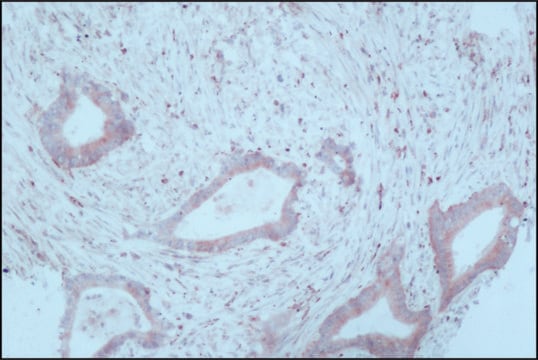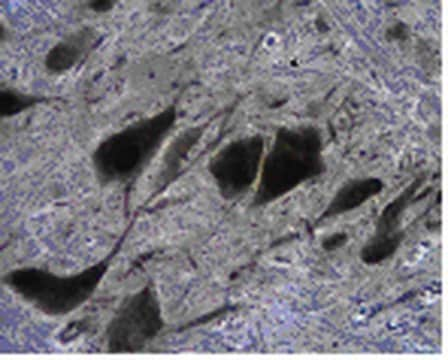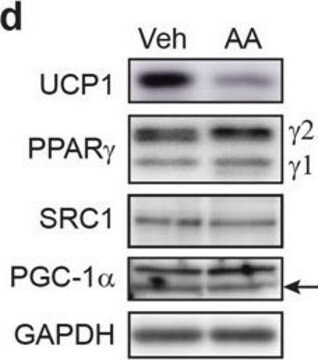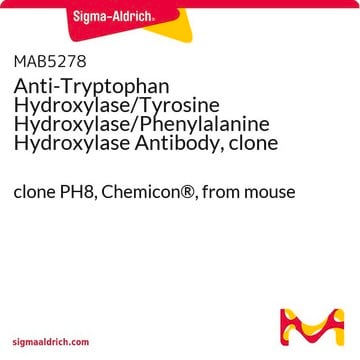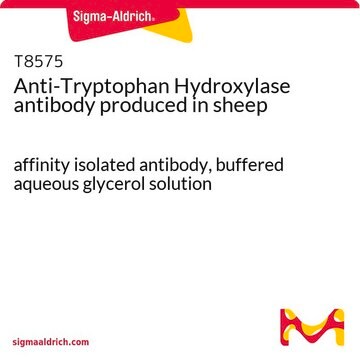Wichtige Dokumente
SAB4200723
Anti-Tryptophan Hydroxylase antibody, Mouse monoclonal
clone WH-3, purified from hybridoma cell culture
Synonym(e):
Anti-TPH, Anti-TpOH
About This Item
Empfohlene Produkte
Biologische Quelle
mouse
Qualitätsniveau
Antikörperform
purified from hybridoma cell culture
Antikörper-Produkttyp
primary antibodies
Klon
WH-3, monoclonal
Form
buffered aqueous solution
Mol-Gew.
antigen ~55 kDa
Speziesreaktivität
mouse, human, rabbit, sheep, rat
Konzentration
~1.0 mg/mL
Methode(n)
immunoblotting: 2-4 μg/mL using rabbit pineal gland lysate
immunofluorescence: suitable
immunohistochemistry: suitable
Isotyp
IgG3
Versandbedingung
dry ice
Lagertemp.
−20°C
Posttranslationale Modifikation Target
unmodified
Allgemeine Beschreibung
Immunogen
Anwendung
- immunoblotting
- immunohistochemistry
- immunofluorescence
Biochem./physiol. Wirkung
Physikalische Form
Haftungsausschluss
Sie haben nicht das passende Produkt gefunden?
Probieren Sie unser Produkt-Auswahlhilfe. aus.
Lagerklassenschlüssel
12 - Non Combustible Liquids
WGK
nwg
Flammpunkt (°F)
Not applicable
Flammpunkt (°C)
Not applicable
Analysenzertifikate (COA)
Suchen Sie nach Analysenzertifikate (COA), indem Sie die Lot-/Chargennummer des Produkts eingeben. Lot- und Chargennummern sind auf dem Produktetikett hinter den Wörtern ‘Lot’ oder ‘Batch’ (Lot oder Charge) zu finden.
Besitzen Sie dieses Produkt bereits?
In der Dokumentenbibliothek finden Sie die Dokumentation zu den Produkten, die Sie kürzlich erworben haben.
Unser Team von Wissenschaftlern verfügt über Erfahrung in allen Forschungsbereichen einschließlich Life Science, Materialwissenschaften, chemischer Synthese, Chromatographie, Analytik und vielen mehr..
Setzen Sie sich mit dem technischen Dienst in Verbindung.